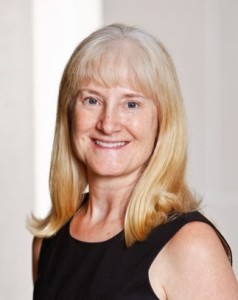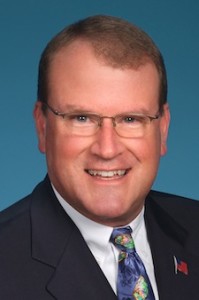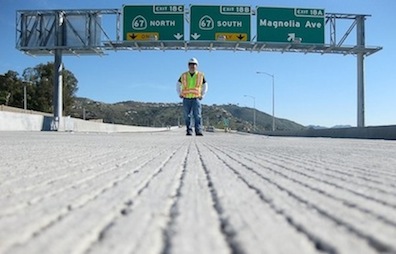Daily Business Report — June 30, 2014
Assessed Value of Property Climbs by 6 Percent
The 2014 assessed value of all taxable property in San Diego County increased by 6 percent from last year, but the majority of homeowners will only see an increased value of less than one half of one percent, Assessor Ernie Dronenburg reported.
The reason is Proposition 13, which mandates that values cannot grow more than the California Consumer Price Index or 2 percent, whichever is lower.
“This year’s CPI factor was less than one half of one percent. There are over 575,000 (68 percent) residential properties in this Proposition 13 category in San Diego County,” said Dronenberg.
This year’s total assessed value in the county is $433.4 billion, or $417.4 billion after deducting tax exempt properties. Based on a 1 percent tax rate, it would produce approximately $4.17 billion in property taxes.
Comparable sales and other market data have indicated that the market value of residential property in San Diego County has been increasing. “This year we are partially or totally restoring many of these properties to their indexed Proposition 13 values because market values are up,” said Dronenburg. Value notices will be sent to affected property owners after July 7.
All eighteen cities in the county experienced positive assessed value growth. The city of San Marcos had the highest growth with an increase of 8.72 percent.
Property owners who disagree with their assessed values and can support a lower value may file an assessment appeal application between July 2 and Dec. 1. Application forms are available from the Clerk of the Assessment Appeals Board at (619) 531-5777 or from the web site at www.sdcounty.ca.gov/cob.
Supreme Court Declines to Take Mt. Soledad Cross Case
The U.S. Supreme Court today declined to review a lower court’s decision regarding the constitutionality of the cross atop Mt. Soledad in La Jolla, leaving the fate of the monument in limbo. A district court in San Francisco had ordered that it be removed, but that order had been stayed pending appeal.
In light of the stay, the Supreme Court said the case must await a decision by the 9th Circuit Court of Appeals.
Supporters of the monument wanted skip the appeals court and go directly to the Supreme Court because the legal fight has been going on for nearly three decades.
“If the court declines to take the case now, then the fate of the Mt. Soledad Cross, and many other memorial crosses throughout our country, will undoubtedly remain in limbo for several more years,” said Charles LiMandri, president and Chief Counsel, of the Freedom of Conscience Defense Fund, before the ruling.
This is the second time the high court refused to hear the case. It made a similar decision in 2012.
— Times of San Diego
UC San Diego Professor Selected for $1 Million Grant

Susan Golden, director of UC San Diego’s Center for Circadian Biology, has been selected by the Howard Hughes Medical Institute as one of 15 HHMI professors, which carries a $1 million grant over the next five years. Golden, a biology professor, heads a center that brings together scientists across the campus studying circadian rhythms, the internal “biological clock” that governs the daily activities in humans and other organisms.
The 15 professors were selected following a competition that involved the review of 173 competitive proposals. According to HHMI, these scientists will use their awards “to create activities that integrate their research with student learning in ways that enhance undergraduate students’ understanding of science.”
Golden will use the bulk of her HHMI award to initiate a new undergraduate course at UC San Diego called the BioClock Studio, which, she said, “will challenge students to translate and communicate research findings in a way that will shape education as wells as public, medical and community behaviors related to circadian biology.”
Top students from an existing upper division course on circadian rhythms that Golden and other faculty teach each fall will form the core of this new course, she said, and “will be joined by students with interests in art, communication, computer science, journalism and education, to develop a suite of educational materials designed for diverse audiences.”
Survey: San Diego and California Worst for Small Business
San Diego routinely wins praise as a location for high-tech startups, but a new survey gives San Diego — and California in general — failing grades for friendliness to small businesses.
According to a national survey of 12,000 small business owners by Thumbtack, a San Francisco-based online hiring service, California fell from its D grading in 2013 to an F in the 2014 survey.
Out of the 82 cities rated for business friendliness, San Diego came in at No. 78. Six other cities in California — San Jose (68), Santa Rosa (70), Riverside (71), Los Angeles (74), Oxnard (76) and Sacramento (82) — were also ranked as some of the least business friendly cities.
“After a two-month survey of thousands of small business owners nationwide, California’s small businesses have rated it near the bottom as one of the least friendly states in the nation towards small business,” Thumbtack’s chief economist Jon Lieber said in a statement. “Creating a business climate that is welcoming to small, dynamic businesses is more important than ever, and California continues to receive low marks from its small businesses for creating this kind of environment.”
The survey found that California received low marks for its business, environmental regulations, and for its tax code, licensing, and zoning laws. California, however, received a favorable mark for the ease of hiring new workers.
— Times of San Diego
Bill Earley to Head Local Red Cross Chapter

William “Bill” Earley, former partner with the McKenna Long & Aldridge law firm, has been named regional chief executive officer of the San Diego and Imperial Counties chapter of the American Red Cross. Earley succeeds former San Diego Councilman Tony Young, who stepped down in March after a little more than a year in the position.
Earley spent more than 24 years at McKenna Long & Aldridge (formerly Luce, Forward, Hamilton & Scripps) holding various titles, including partner. He also established his own law and management consulting firm, The Earley Group, while pursuing other local projects. Earley’s varied background and interests include experience as a sportscaster on television, radio and Internet, political aide and legal extern (U.S. Senate), athlete (basketball player in Germany and three-time Ironman triathlete), business person (served on former firm’s executive committee, small business owner and chamber board member), and community advocate.
Earley is a graduate of San Diego State University. He will assume the position on July 14.
RV Street Parking Enforcement Begins in August
Only a few weeks remain before San Diego begins enforcing its new ordinance banning motorhomes and other oversized vehicles from parking overnight on city streets without a permit. After finalizing some minor details at the end of June, city leaders expect the ordinance to formally take effect around Aug. 1.
Residents will have a two-week grace period through Aug. 15 before police begin enforcing the law. Each vehicle will receive one warning before a ticket is issued. The ordinance defines an oversized vehicle as any vehicle that exceeds 27 feet in length and 7 feet in height, including any attached trailers or loads. The ordinance also covers any camping trailer, house car, boat, dune buggy, all-terrain vehicle (ATV) and other motorized or towed vehicles used primarily for recreational purposes. Residents will be allowed to get permits to park restricted vehicles on the street near their home for up to three consecutive nights. A one-night permit will cost $2 and can be obtained through on online system. Residents are allowed up to 72 one-night permits in a year.
— Mission Times Courier
Healthcare District Seeks Board Applications
The Grossmont Healthcare District, an East County public agency, is accepting applications to fill a vacant seat on its board of directors. Applicants must be registered voters living with the district boundaries and are required to file a Fair Political Act Disclosure Statement. Applications should include qualifications and reasons for wanting to serving on the board. Applications can be mailed to the GHD offices, 9001 Wakarusa St., La Mesa, CA 91942. Deadline for submitting an application is 2 p.m. on July 7. The vacancy occurred when Dr. Michael Long resigned for personal reasons. The appointee will serve the remainder of Long’s term.
More information is available by contacting CEO Barry Jantz at (619) 825-5050.
Preuss Graduate Joins Sister in Winning Gates Scholarship

Daniel Million, one of two seniors at the Preuss School UCSD to receive a Gates Millennium Scholarship, is also the second in his family to receive the prestigious award. Just three years earlier, his sister Miriam received the same scholarship during her senior year at Preuss. Being awarded the scholarships meant their family would not have to worry about how to pay for college as Gates Millennium Scholars have all college costs covered through graduation.
This scholarship changed everything,” said Daniel Million, who plans to attend the University of Southern California this fall and study neuroscience. Mirriam Million is at Johns Hopkins University studying public health. “Even with my other scholarships and grants, I was till expected to pay $8,000 per year, which would have been a huge burden to my family.”
— Times of San Diego

Caltrans Receives $16 Million for 2 Highway Projects
The California Transportation Commission has doled out $510 million to pay for 83 projects statewide to improve highways, bridges and public transportation, including two in San Diego County.
According to the CTC, more than $16 million is earmarked for rehabilitating the pavement on state Route 67 between Interstate 8 and the San Diego River crossing, which is just north of Mapleview Street in Lakeside.
Near the international border, the pavement of state Route 905 will be reconditioned to extend its life and ride quality, from just west of Caliente Avenue to the state Route 125 interchange. The CTC provided $4.65 million toward the project.
“To get the most bang for the buck for taxpayers, Caltrans targets dollars where they are most effective — pavement preservation,” Caltrans Director Malcolm Dougherty said. “Every $1 spent on preventive pavement maintenance saves Californians $11 that would have been spent on expensive pavement repairs.”
The budget for the 2014-15 fiscal year, which begins Tuesday, sets aside $2.4 billion for the state Highway Operation and Protection Program.
— City News Service


